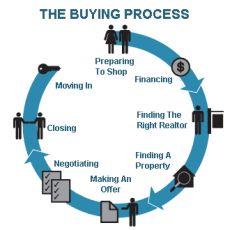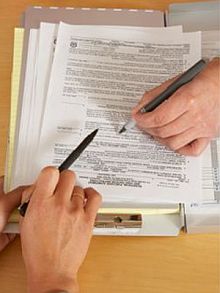Puerto Vallarta, Mexico - The process of buying a home here in the greater Bay of Banderas area (Mismaloya, Puerto Vallarta, Nuevo Vallarta, Bucerías, La Cruz de Huanacaxtle, Punta de Mita, Litibu, Sayulita, etc.) isn't dramatically different from purchasing a home in the US or Canada, but there are some differences to the process. I thought that it might be helpful to some to walk through the process.
 |
Note: You do NOT need to be a citizen of Mexico, nor a resident of Mexico to purchase property. You can do so as a tourist.
 |
Your agent can use your list of "needs" and "wants" (for example, budget, minimum number of bedrooms, specific neighborhoods or areas of town, pet-friendly or not, stairs or not, large or small complexes, preferred view, modern or traditional Mexican architecture, ideal for rentals or full time living, etc.) in a search of our MLS systems to find homes that match your criteria. That individual can send you that list to peruse. Together, you can assemble a list of homes you'd like to visit.
Scheduling visits is a bit more of a process here in the area for real estate agents, as the seller's agent is nearly always present for the showing (as opposed to lock boxes, etc.) It adds to our process a bit, but it's a nice "plus" for our clients. The seller's agents know the properties well, and are generally in the best position to talk about the building amenities, etc. Your agent will work with the seller's agents to setup an agenda for visits that will work for all.
Once you find a home that strikes your fancy, you may find yourself wanting to make an offer. You would tell your agent the amount that you would like to offer. Your agent will contact the seller's agent for specific information on the escritura (deed) to include in the offer (seller's name, specifics of the property, etc.) Your agent writes up the offer, and generally includes a number of contingencies. These may include, for example:
• An inspection (we do have qualified folks in the area who do these)
• Your review of HOA documents (financials, by-laws, annual meeting notes, etc.)
• Acknowledgement by the seller of any legal issues related to the property or staff
You review the offer, and sign (unless there are changes to be applied.) Your agent then sends it to the listing agent, who will forward it to the seller for review. No money passes hands at the point of the offer (unlike the deposit check that's typically written in the US, for example.) There may be a counter-offer or several counter offers involved, as in the United States and Canada.
 |
Once all contingencies are removed, we move to escrow. Escrow companies (generally based in the US - it's common that your funds will remain in a US bank and be distributed from there) handle the acceptance and transfer of funds to the receiving parties (the seller, the government if there are taxes associated with the sale, the real estate agencies brokering the transaction, etc.) Although the terms of your escrow are subject to the contract, it generally involves:
• A wire transfer of 10% of the purchase price from your bank to an escrow account
• The escrow fee (as outlined in your contract) - generally around $750 USD
• A deposit toward your closing costs (generally, a $3000 USD deposit.)
Note: Closing costs include both fixed and variable costs (related to the purchase price.) The buyer does NOT pay the real estate agency commissions - those are paid by the seller. Please feel free to ask your real estate agent for a general range of the overall closing costs to expect.
 |
Quick side note: Trusts (called fideicomisos) are required for non-Mexican citizens purchasing property within 50 kilometers of the coast or border (which means that they're required for Puerto Vallarta properties.) These trusts are NOT leases, and are not listed as bank assets. They are renewable 50 year trusts that assign to whom the ownership of your property will transfer if you were to pass away.
Your agent will work with the closing coordinator and notario (a government official - I'll explain his role a bit later) to determine the closing date for your new home. The date is listed in the contract, but (unlike the US and Canada) is definitely subject to change by a few days or a few weeks (rarely more than that), as several government agencies (and more importantly, the banks related to the trusts) are involved. Never fear - if you can't attend, there is also a power of attorney process available.
Just prior to the close, you will be asked to wire the remaining balance of the purchase price and the balance of the closing costs. You will probably be asked to wire transfer a sum a bit above those amounts to account for pro-rated prepaid items (taxes for the remainder of the year, HOA for the rest of the month, with an offset for anticipated utility bills that are due to be received, etc.)
 |
At the closing, the closing coordinator can review the new escritura with you. You and the seller will both sign the escritura and place your fingerprints on the document. You then receive the keys and a "congratulations!" from all. At that point in time, you're a new Puerto Vallarta homeowner!
I hope that this is helpful. Please feel free to discuss the process with your real estate agent of choice. Perhaps some day we'll be neighbors!
David Hoffman is a Real Estate agent at Tropicasa Realty. If you are thinking about buying or selling an investment property in Puerto Vallarta or the Banderas Bay area, contact him at 322-888-0791 or davidh(at)tropicasa.com. Since 1997, Wayne Franklin and his team at Tropicasa Realty have been a trusted name in Puerto Vallarta real estate. Tropicasa Realty is the region's representative for "The Leading Agents of the World" and with over 100 years of combined experience in real estate, all agents of the company are affiliated with AMPI. Wayne Franklin or any member of his knowledgeable team can be contacted in-person at their Romantic Zone Office - Pulpito 145-A at Olas Altas or in their San Marino Office - San Marino Hotel at Rodolfo Gomez 111-4. While in PV they can be reached at (322) 222-6505 or by calling 866-978-5539 (Toll-Free) from the U.S.
Since 1997, Wayne Franklin and his team at Tropicasa Realty have been a trusted name in Puerto Vallarta real estate. Tropicasa Realty is the region's representative for "The Leading Agents of the World" and with over 100 years of combined experience in real estate, all agents of the company are affiliated with AMPI. Wayne Franklin or any member of his knowledgeable team can be contacted in-person at their Romantic Zone Office - Pulpito 145-A at Olas Altas or in their San Marino Office - San Marino Hotel at Rodolfo Gomez 111-4. While in PV they can be reached at (322) 222-6505 or by calling 866-978-5539 (Toll-Free) from the U.S.Click HERE to learn more about Tropicasa Realty, or visit tropicasa.com.



